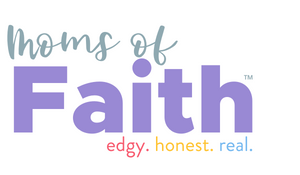Calcium and Pregnancy
Studies show that most women do not get enough daily Calcium. And many pregnant women do not realize that the typical prenatal vitamin only contains 4-20% of the RDA of Calcium. Calcium is essential for strong teeth and bones, muscle contractions, nerve function and blood clotting. Calcium-deficiency results in decreased bone density (which in turn leads to osteoporosis and increased bone fracture risk), hypertension, preeclampsia, and increased cavities. There is also clinical evidence that correlates Calcium-deficiencies with preterm deliveries, low birth weight babies, high blood pressure in baby and cesarean sections. Our bodies cannot produce Calcium, therefore we must consume it. The Recommended Daily Allowance of Calcium for pregnant or, breastfeeding women, is 1,200 mg. Good sources of Calcium are listed on the bottom of this article. There is, however, much more to getting your daily allowance than just consuming 1,200 mg of calcium. There are many factors that contribute to how much calcium is actually absorbed by the body. For example;
Vitamin D: Vitamin D facilitates calcium absorption into our bones. So you could consume all the calcium in the world, but with no vitamin D it won’t do you any good. Contrary to calcium, our bodies produce vitamin D following exposure to sunlight. Fifteen minutes, two to three times a day is usually sufficient to produce the vitamin D we need. Natural food sources high in vitamin D are egg yolks, saltwater fish and liver. The RDA of vitamin D is 400 IU. Use caution though, extremely high doses can be harmful, even fatal. Do not exceed more than 800 IU unless recommended by your doctor.
Timing: Your body can only absorb so much calcium at one time. For this reason, it is imperative to space out your calcium intake throughout the day. It is recommended that you do not intake more than 500 mg in one sitting.
Elemental Calcium: Elemental calcium is the amount of calcium that your body can use. For example, a 500 mg calcium carbonate tablet contains 200 mg of elemental calcium, and a 500 mg calcium citrate tablet contains 105 mg elemental calcium. So be sure to look at the elemental calcium weight, not just the total weight. Another factor to look at is how well a supplement pill dissolves in a glass of warm water after 30 minutes. If it doesn’t dissolve, this tells you it will also not absorb very well into your body.
Avoid calcium supplements from unrefined oyster shell, bone meal, or dolomite without the USP (United States Pharmacopeia) symbol. They may contain high levels of lead or other toxic and potentially harmful metals. Also, people with shellfish allergies should not take coral calcium. It is important to consult with your doctor if you have certain medical conditions (i.e., thyroid disease, kidney disease, gallstones, lactose intolerance, or certain rare diseases), and check possible interactions with other over-the-counter or prescription medications.
Also remember that too much of a good thing is not a good thing. Excessive intake of Calcium (over 2,500 mg daily) can lead to kidney stones. Calcium in any amount reduces the efficiency of several antibiotics and also reduces the absorption of many vitamins, especially iron.
Food sources high in Calcium:
Dairy:
450 mg – 1 cup Plain yogurt;
340 mg – 1/2 cup Ricotta cheese;
315 mg – 1 cup fruit yogurt;
300 mg – 1 cup milk;
272 mg – 1 oz Swiss cheese;
204 mg – 1 oz. Cheddar cheese;
175 mg – 1 oz. American cheese;
138 mg – 1 cup Cottage cheese;
118 mg – 1/2 cup soft serve Ice cream
Vegetables:
122 mg – 1/2 cup Spinach;
99 mg – 1/2 cup Turnip greens;
90 mg – 1 cup Broccoli;
80 mg – 1/2 cup Bok Choy;
73 mg – ½ cup dandelion greens;
45 mg – 1/2 cup Kale
Beans:
175 mg – 1 cup cooked soybeans;
162 mg – 1 cup cooked white beans;
80 mg – 1 cup garbanzo beans;
50 mg – 1 cup cooked red kidney beans;
47 mg – 1 cup cooked black beans
Other:
434 mg – ½ cup tofu with calcium;
269 mg – 10 dried figs;
214 mg – 2 bean and cheese burritos;
180 mg – 3 oz. Salmon, canned with bones;
172 mg – 1 tbsp blackstrap molasses;
80 mg – 1 oz. Dry roasted almonds;
44 mg – Corn tortilla
Joy is the webmaster at https://www.babynamesetc.com – home of the free and unique baby name generator.
